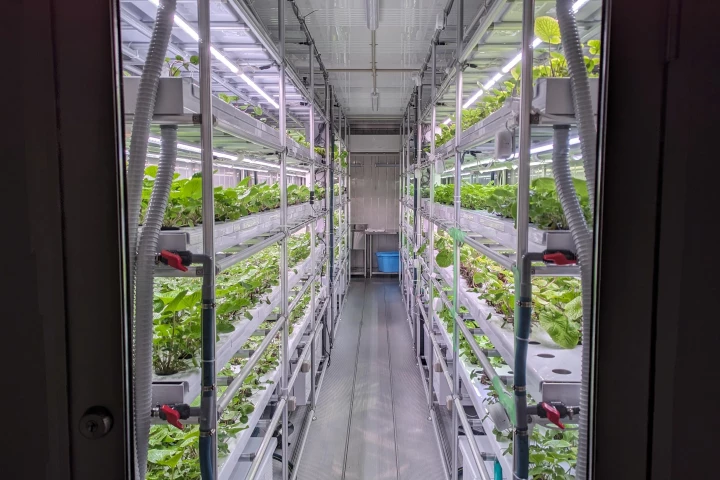Plants
-
New research has found when plant leaves physically touch each other, they seem to form a biological signalling network to warn each other about upcoming stress. This boosts resilience to intense light, a common environmental challenge.
-
You might be more familiar with it as a versatile fibrous material or the staple food of giant pandas, but bamboo has entered the health-food realm thanks to the first review into its benefits. They include aiding blood sugar regulation and gut health.
-
By adjusting a typical polymer synthesis, researchers have created a spray-on polymer solution that could save billions of tons of crops. It's harmless to plants, and weakens the cell membranes of a variety of harmful bacteria.
-
A new thumb-patch of dissolvable microneedles injects biofertilizer directly into plant leaves. In lab tests, kale and choy sum grew taller and faster with bigger leaves and shoot biomass, using 15% less biofertilizer.
-
It's that time of year – and my personal favorite corner of science to look back on – when we recap the many fascinating discoveries in the plant and animal kingdom in 2025. Orcas have again made news, but no luxury yachts were hurt in the process.
-
Extremophilic Tidestromia oblongifolia alters its own photosynthesis to thrive in heat that would kill most plants. By reorganizing its cells and reshaping its chloroplasts to keep producing energy, is it the future of GMO crops in climate chaos?
-
In order for farmers to know if their fruit is ripe, they have to pick and analyze pieces of that fruit, reducing their yields. Utilizing a new technique, however, they could soon leave all the fruit intact, analyzing the leaves beside it instead.
-
Japanese agri-tech company Nextage has developed a mobile wasabi growing module that automates cultivation. The device reportedly allows anyone to grow their own crops without the limitations of geography or lack of experience.
-
There's an old saying that everything in Australia wants to eat you – and this apparently includes plants. Now scientists have made a special find, stumbling across a massive community of a rare meat-eaters living closer to humans than ever before.
-
New evidence shows that Neanderthals, early Homo sapiens and even earlier hominins were using, processing and eating starches, grass seeds, nuts, fruits, sedges and tubers long before the supposed "Broad Spectrum Revolution" diet shift took place.
-
Rare earth elements that are crucial for producing tech products, from EVs to phones, require destructive mining to get them out of the ground. Scientists in China might have just found another source for them that's easier to reach: ferns.
-
Harsh, eco-unfriendly synthetic herbicides are definitely one of those things that you shouldn't be using if you don't have to. Japanese researchers are thus now developing a green alternative, derived from the leaves of a humble walnut tree.
Load More











